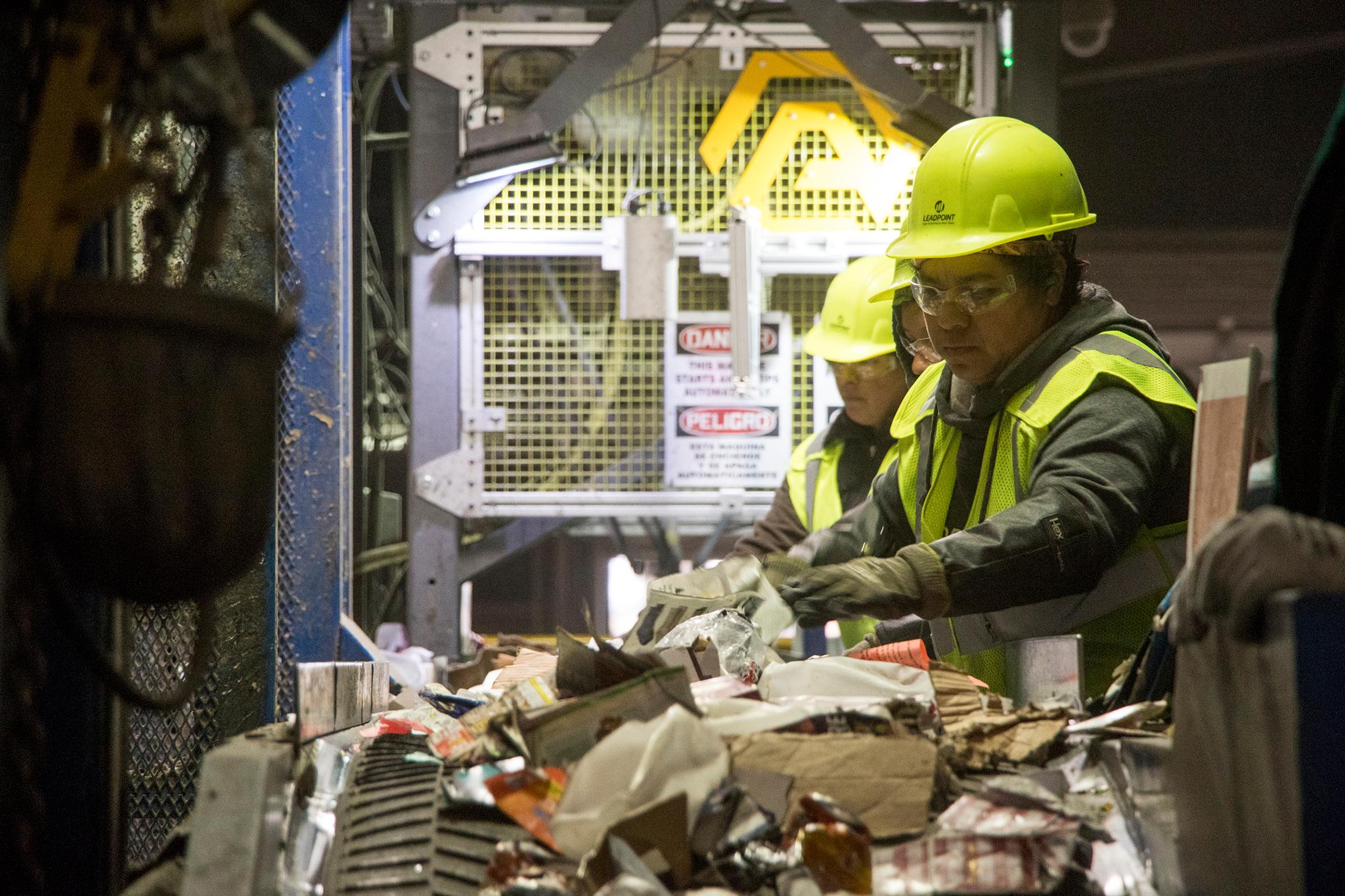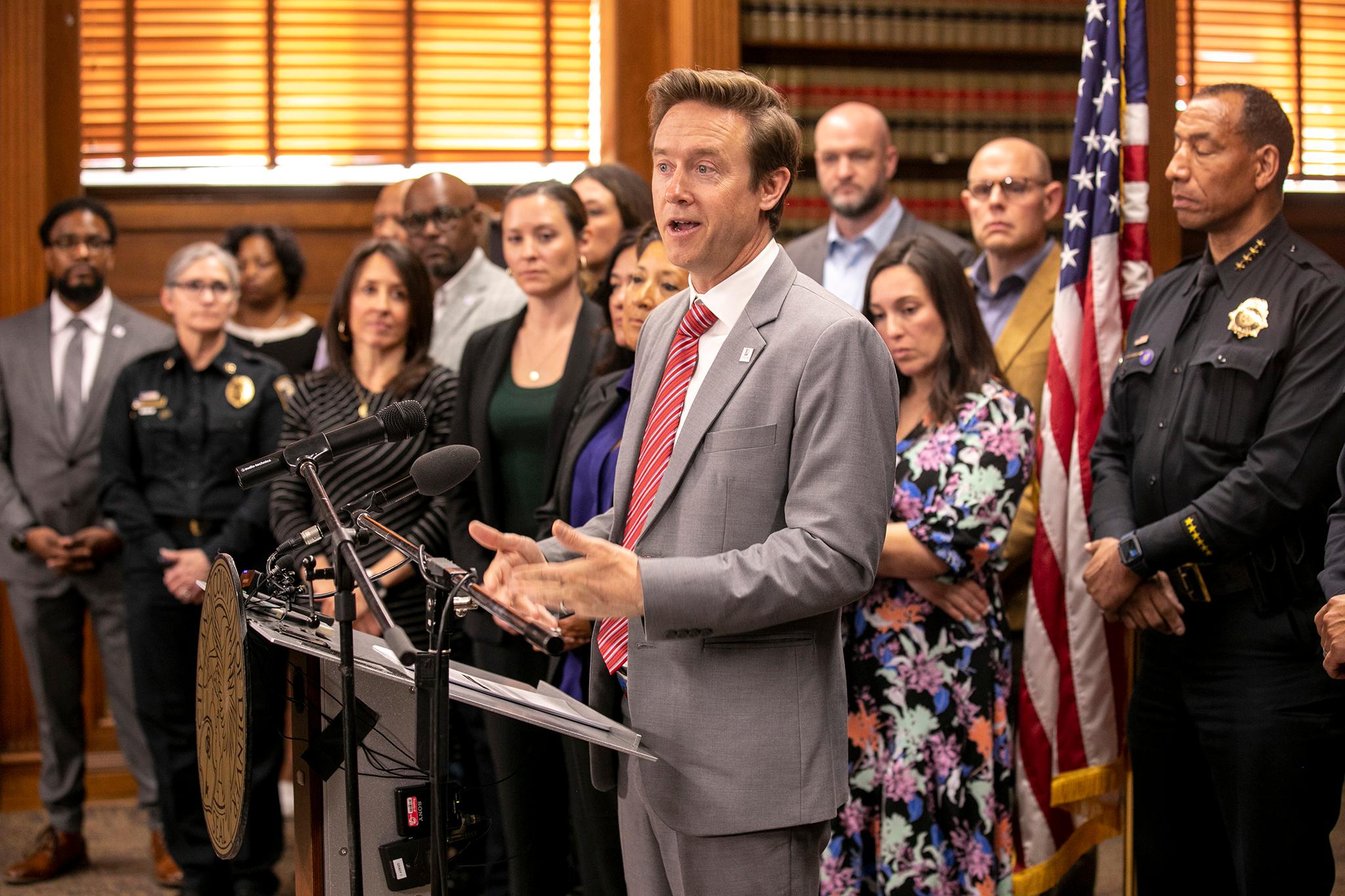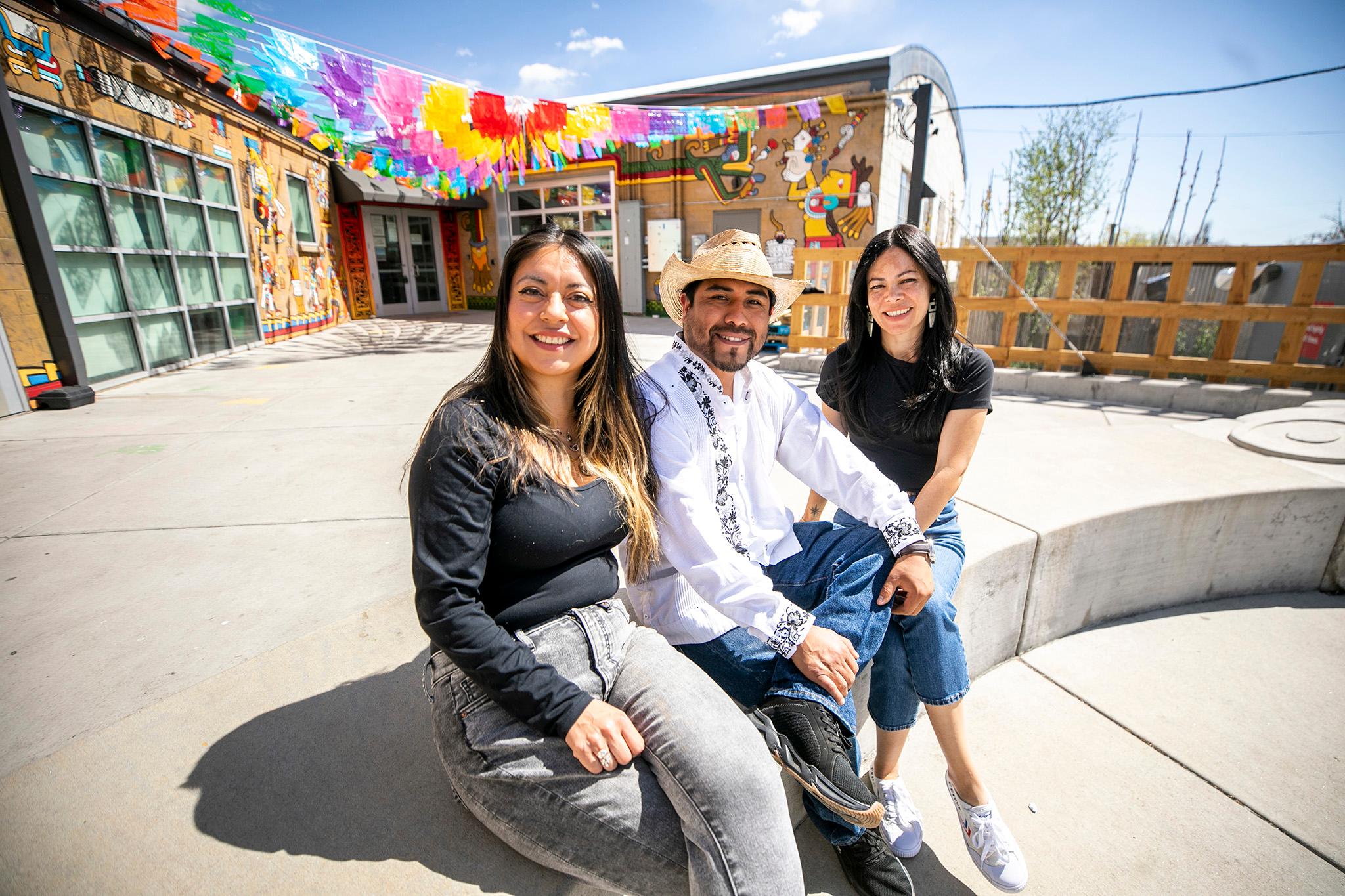An annual report on the state of Colorado's recycling industry paints a dismal picture of the state's programs. Colorado only recycles 15% of its trash, less than half of the nationwide average of 32%, making it one of the 20 most wasteful states.
"Not only are we worse than national average, but we're worse than most of our Western peer states," Suzanne Jones, the executive director of the nonprofit Eco-Cycle, said.
Since state tracking began in 2007, the only increase in recycling has been due to population growth.
"We are keeping pace, but we are not making any gains to reduce our waste and recover more resources," Jones said.
Denver has passed measures in recent years, like creating the disposable bag fee, limiting the use of single-use utensils in takeout or implementing a composting program to address the issue. But the main factors that make recycling tricky in Denver have remained relatively unchanged.
First, apartments, condos and businesses don't automatically receive recycling services from the city, and landlords aren't required to provide the service through a third-party. Advocates are attempting to address this service gap through a ballot initiative that voters will see in 2022. Second, Colorado's landfills are not constrained by space, so there has been little pressure to limit their size, Denver's recycling manager told us in 2016. And, finally, it's just cheaper to throw away than to reuse, so the incentive for producers to recycle just isn't there.
According to the city, Denverites recycle around 26% of recyclable waste. That's up from 20% in 2017, when composting first rolled out.
During a webinar Monday discussing the report, Randy Moorman of Eco-Cycle said Colorado isn't on track to reach nationwide averages anytime soon.
"We are burying millions of pounds of trash and hundreds of green jobs," Moorman said.
There's a common thread running through all the new legislation to encourage less waste: The burden falls onto consumers and business owners, not the companies creating the products, to do the heavy lifting.
This is where the report's recommendations come in. The main one: create a statewide or municipal "producer responsibility" law. Through this framework, manufacturers would be forced to contribute into a fund dedicated to paying for the collection, sorting and transportation of the materials after use. Fees would be based on the amount of packaging in their products.
Denver doesn't have any laws like this in the works, but Eco-Cycle said state representative Lisa Cutter of Jefferson County and state senator Kevin Priola of Adams County have expressed interest in supporting such a bill.
Correction: The ballot initiative regarding apartment complexes was successful and will be on the ballot in 2022.













